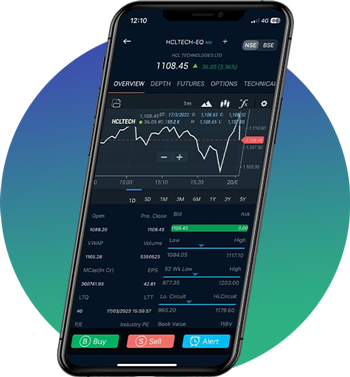



SMC provides you option to diversify your portfolio by investing in Stocks, Mutual Funds, ETFs, US Stocks, Currencies, Commodities, Futures & Options, Bonds etc













With SMC Ace app, enjoy best-in-class features for a robust investing journey.

Get detailed information of scrip for better decision making.

State of art portfolio tracker with heatmap & realtime analytics.

Take multiple actions on any scrip viz. Buy, Sell, Scrip details & Charts.

Multiple tools & studies with customized view to analyse movement.

A Demat Account is primarily used to hold securities and shares. The idea was first introduced in 1996 as an alternative to physical share certificates. A Demat Account not only makes trading stocks quick and easy but also eliminates all of the risks associated with holding a physical certificate.
You can use a Demat Account to store investments such as equity shares, ETFs, bonds, debt securities, mutual funds, or government issuances among other things. In India, it is mandatory for investors who want to invest in the stock market to have a Demat Account.
For Individuals, documents required include:
An investor can open multiple demat accounts. However, they must link their PAN number with each demat account that they have opened.
You can now open a Demat Account online from the comforts of your office or home.
Yes, the Demat account opening is free of cost with a margin deposit of ₹5,000.
You do not need to maintain any minimum balance to keep your account active.
At some point of time your Demat account will be considered as a dormant Demat account (an inactive account). After that you won't be able to do any transactions from this account until you reactivate it.
If no transaction is done for a long period, a demat account can turn dormant.
NRIs can also open a Demat account. For that they need to have either NRE or NRO bank account.
Yes, a Demat account can be opened in single or joint names. A maximum of 3 names can be added in the joint Demat account.
Yes, nomination facility is available in Demat Account.
With SMC Demat Account, experience ease of trading to achieve your goals.

of trust

App Downloads

Happy customers

AUM*





